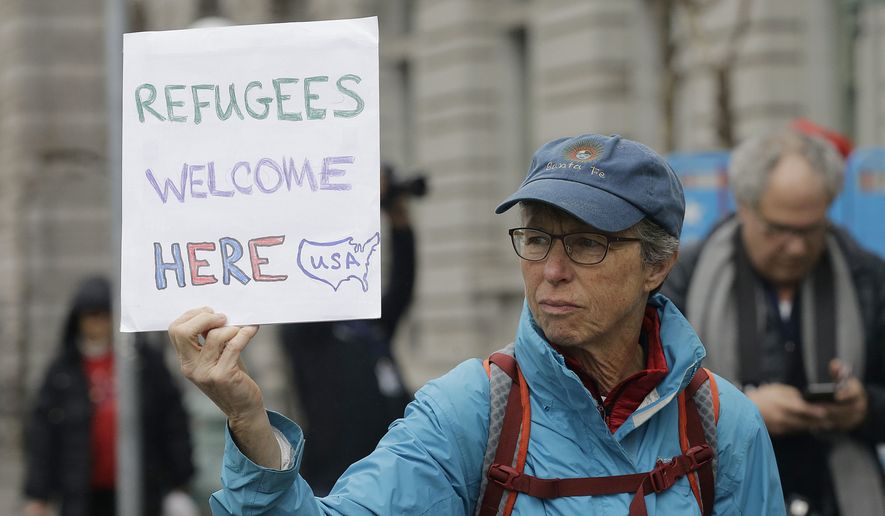President Trump’s own loose campaign rhetoric may be coming back to bite him, after a federal court said his brash call for a Muslim ban is “potential evidence” that could be used against him in the legal battle over his new extreme vetting executive order.
The Justice Department tried to argue against that, telling the 9th U.S. Circuit Court of Appeals on Tuesday that campaign quotes shouldn’t be used to try to interpret the intentions of Mr. Trump’s executive order.
But Judge Richard R. Clifton wasn’t satisfied with that dodge, saying that if Mr. Trump and his advisers did in fact say they were trying to impose a Muslim ban, that could inform the way the court looks at the order Mr. Trump signed on Jan. 27.
“I understand the argument they shouldn’t be given much weight, but when you say we shouldn’t be looking at newspaper articles — we’re all on the fast track here,” Judge Clifton said. “Either those kinds of statements were made, or they’re not. Now if they were made not to be a serious policy principle, I can understand that. But if they were made, it is potential evidence, it is the basis for an argument.”
Mr. Trump spent months during the campaign parsing what, exactly, he meant when he announced in December 2015 that he wanted “a total and complete shutdown of Muslims entering the United States” until the government could get a handle on things.
Eventually Mr. Trump said what he meant was that Muslims should undergo “extreme vetting” before being admitted.
SEE ALSO: Donald Trump lawyers ask court to reinstate extreme vetting order
In the new executive order, Mr. Trump imposed a 90-day halt on most visitors from seven majority-Muslim countries deemed to be nexuses for terrorism. He also imposed a 120-day pause on the U.S. refugee program.
Democrats have said that policy amounts to a “Muslim ban,” while fact-checkers have said it doesn’t. Even the lawyer arguing in court Tuesday against Mr. Trump’s policy admitted that it is not a “complete ban on Muslims entering the country.”
But whether the policy is discriminatory toward Muslims is still relevant, and Mr. Trump’s quotes could be evidence for that, said Washington state Solicitor General Noah G. Purcell.
President Obama faced the same situation of having his words come back to haunt him on immigration.
For years, Mr. Obama had said he didn’t have power to grant a broad deportation amnesty to millions of illegal immigrants — then he reversed himself in 2014, saying he discovered he actually did have the power.
Judges didn’t let the administration forget the flip-flop. District and appeals court judges chided the president for the reversal, and even Chief Justice John G. Roberts Jr., during oral argument last year, demanded the president’s lawyer explain the flip-flop.
At the time Solicitor General Donald B. Verrilli Jr. said Mr. Obama probably changed his mind after getting an analysis by the Justice Department.
Ironically, Chief Justice Roberts played a major role in disregarding Mr. Obama’s own words in another landmark case upholding Obamacare. During the debate over Obamacare, the president and his aides had repeatedly said the Affordable Care Act’s penalty for those who refused to obtain insurance wasn’t a tax.
But Chief Justice Roberts said it was, in fact, a tax — which is the only reason Obamacare was legal. If he had accepted Mr. Obama’s claim, he would likely have ruled against the president and struck down his signature achievement.
• Stephen Dinan can be reached at sdinan@washingtontimes.com.




Please read our comment policy before commenting.